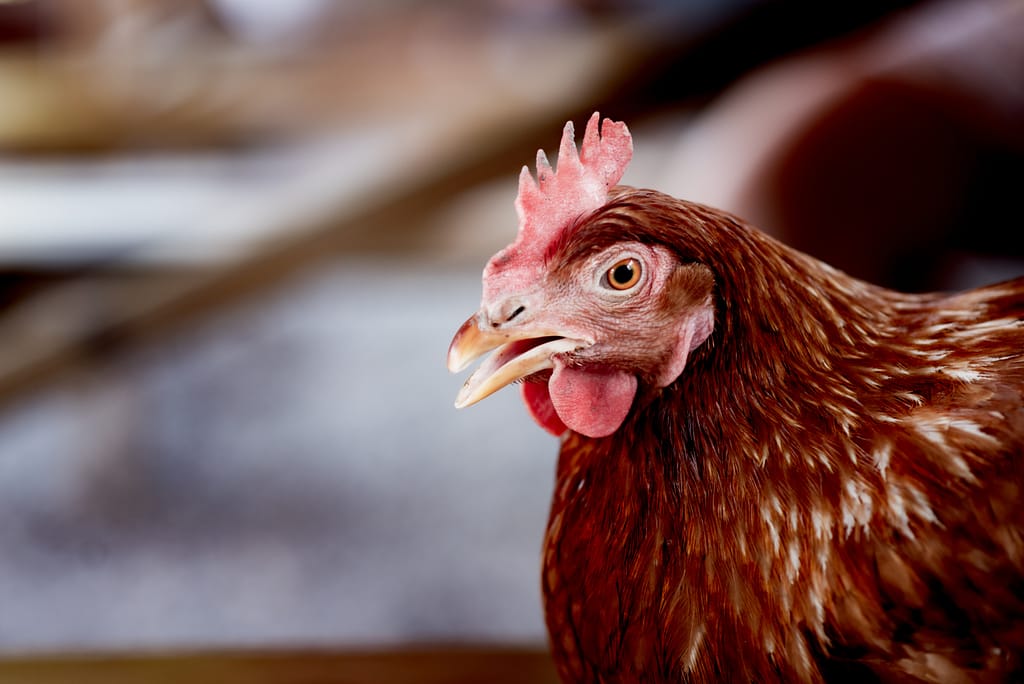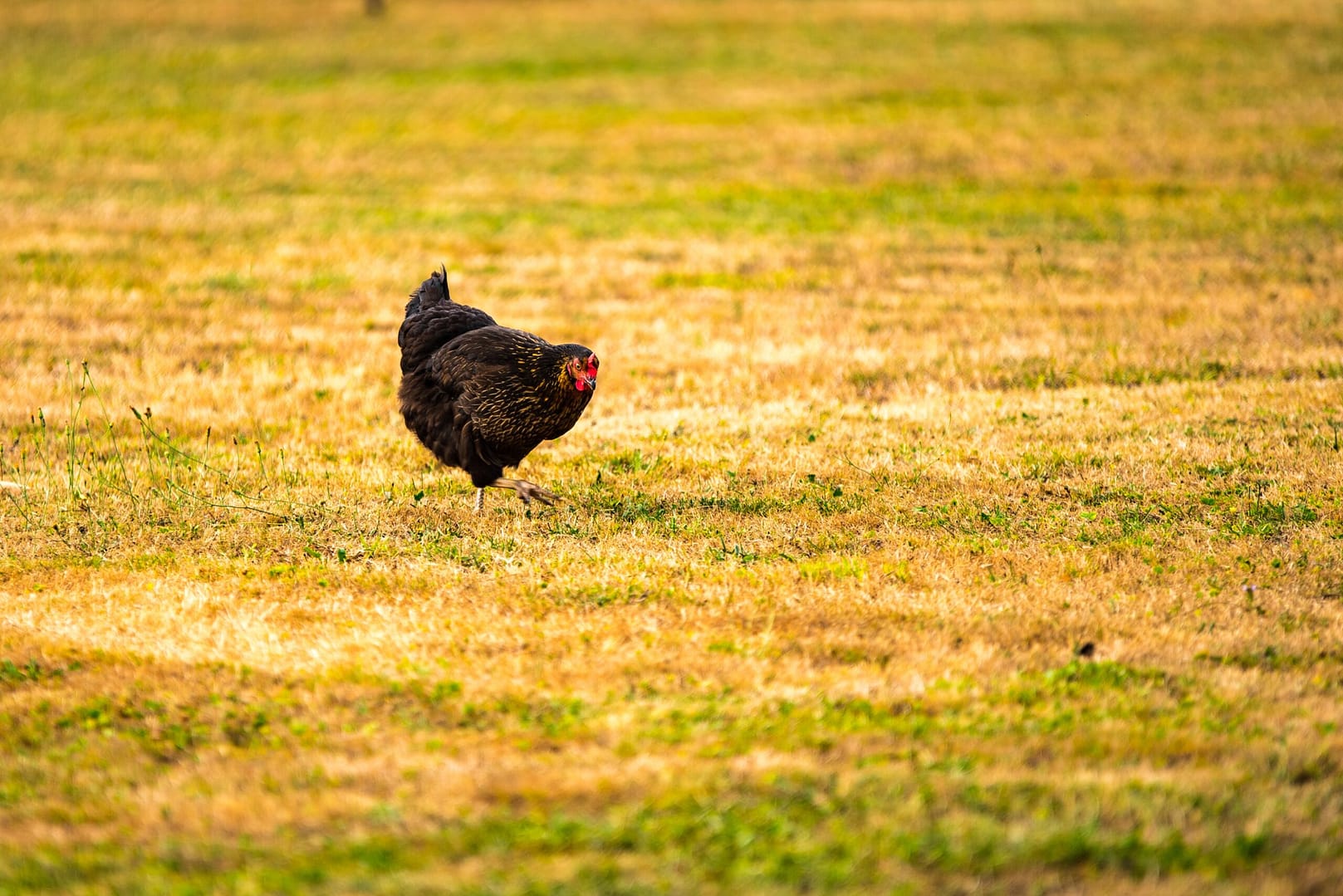How to Protect Your Chickens from Heat Stress During Summer
Summer’s fast approaching, and the weather is really starting to warm. The grass is greener, the bugs are out en masse, and the temperatures keep on cranking upwards. Already, we’ve been experiencing high temps in the 90’s where I live – and it is only May.
Chickens are very adaptable animals and can withstand a variety of temperatures and weather conditions; however, some of the higher temps of summer can pose a serious problem for their health, much more so than extreme cold temps.
Just like people, chickens can experience overheating and heat-stroke symptoms from overexposure to the sun and high heat. Unlike people though, they’re not able to escape inside to an air-conditioned room or sip on some iced lemonade and unlike some other animals, they don’t have very efficient ways of naturally dispersing heat such evaporative mechanisms like sweating.
So! It’s up to us, as chicken owners, to help make sure our chickens have what they need to beat the heat.
What is Heat Stress?
Heat stress is considered an environmental stress factor that can affect chickens and other animals (and people too). It’s a condition where the body is unable to get rid of excess heat. The stress on the body cause by heat stress can lead to worse symptoms such as heat stroke, heat exhaustion, or heat rashes.
Typically, chickens being raised in tropical and subtropical areas were most at risk, but with weather changes throughout the years it’s becoming a factor in more northern areas as well.
How Hot is too Hot?
If you feel like it’s too hot outside and can’t wait to get back into your house and your air-conditioning, then it’s also probably too hot for your chickens.
Typically, anything over 90° Fahrenheit (32.2° Celsius) could be considered a risk for overheating and heat-related issues. Certain factors, like direct sunlight exposure, and humidity will also contribute to heat risks.
This doesn’t mean you need to build your chickens an airconditioned coop, but there are some things you can do to help them deal with this heat.
Heat Dangers for Chickens
Overheating, or heat stress can lead to various health issues in chickens. While some of the effects are mild, prolonged periods of being overheated can lead to severe illness and even death in your chickens.
As mentioned earlier, chickens lack the ability to efficiently dispel heat from their body, they’re much better at insulating heat in. They can pant, like a dog would, but it’s not very effective in helping to keep their bodies cooler and they’re unable to sweat at all which is a big factor for other animals when it comes to keeping them cooler.
Effects of heat stress in chickens:
- Change in behavior, lethargy.
- Lack of appetite/reduced food consumption –> Lack of nutrition, Catabolism, Poor digestion, Stunted Growth
- Low egg production
- Poor egg quality – smaller eggs, shell thin and brittle, poor internal egg quality
- Poor meat quality – if a meat bird meant for consumption.
- Potentially death, especially if lacking water.

Signs Your Chicken is Overheated
- Panting – the first sign of heat stress you’ll usually see in a chicken is they will open their mouths and pant (a bit like a dog). This is fairly normal in any hot weather and shouldn’t necessarily be considered a danger sign unless your chicken seems to be in distress. If the panting becomes slower, deeper, and more laborious for your chickens, then heat stress is getting to be a danger and they need to be cooled off immediately.
- Outspread Wings – when getting too hot, chickens will often spread their wings out to help cool themselves off. If your chickens start doing this, then you may want to consider using some of the methods we’ll get into below to help cool them off.
- Color change & drooping in combs & wattles – anytime the comb and wattles on your chicken change color you should pay attention to anything that may be affecting their health. Usually combs and wattles will turn pale if your chickens are stressed and not feeling well. If they’re not feeling well due to the effects of heat stress, your chickens comb may also droop down to one side (if they have a larger comb).
- Lack of energy / Lethargy – Extended periods of heat stress will often lead to lethargic behaviors in your chickens. Your chickens might squat close to the ground, will move around infrequently, and will eat less. They may also hang their head to one side, in a bit of a droopy manner.
- Crowding in shaded areas – If it’s hot out and there’s limited shade for your chickens to get under, then you may find all of your chickens vying for a spot in the shade. Crowding around like this, of course, means your chickens bodies are close to each other which won’t help much with cooling off.

Keeping Your Chickens Cool in the Summer Heat
- Provide shaded areas – one of the best ways to keep your chickens safe from high temperatures is to provide areas of shade. Building your chicken’s coop near a tree, having a covered run, and/or draping a shade cloth over their area are great ways to do this.
- Ventilation in coops and other enclosed areas – ventilation is important to chickens health all year long. Proper ventilation allows for excess moisture and ammonia to escape, brings in fresh air, helps mitigate smells and excessive dust from building up etc. I recommend having several holes for ventilation on your coop, covered up with hardware cloth to keep out pests. Ventilation areas lower to the ground will allow cooler air in, while ventilation at the top will allow hot air to escape (since hot air rises).
- Keep your chickens hydrated – chickens will not last long in summer heat if they don’t have water. Consider having more than one water source for your chickens. That way if one of the water sources gets a leak and dries up, your chickens have a backup. Making sure they have water is particularly important during summer because even just three hours without water in heat could potentially be life threatening for a chicken.

- Keep the water cold – besides having access to water in general, keeping the water cool will also help your chickens combat high temps. One way to do so is by keeping the water in a shaded area. You can also add ice to the water which I highly recommend doing. You can add a couple cups of ice from your freezer, or you can use something like an old Tupperware bowl and freeze large sized blocks that will last longer (depends on what will fit in the waterer that you have).
- Cool treats – another great way to help your chickens stay cool is by providing cold or even frozen treats. Chop up your chickens’ favorite fruits and veg and freeze them together in a Ziplock baggie or Tupperware container and provide for your chickens. They’ll enjoy packing at the frozen treats and eating them as they defrost from the outside in. Remember to keep treats to only about 10% of your chicken’s daily food in order to ensure they’re getting the right amount of nutrients.
- Avoid fatty foods – some foods, like corn and other seeds, provide your chickens with high levels of sugar and fats which helps them build warmth during winter… not something you want during summer as much. While you don’t need to completely deprive your chickens of corn, it’s probably best to limit the amount so your chickens aren’t building up even more fatty insulation than they already have.
- Probiotics for gut health – one of the issues that comes with heat stress is a decrease in metabolism and other digestive processes. Some scientists have been studying ways to change chicken’s diets during hot weather to help increase digestive functions so that they can maintain better bodily functions. One such method, is by giving them probiotics. Some brands of grit come enhanced with probiotics, but you can also give your chickens yoghurt (sugar free). Just keep in mind chickens + yoghurt = a mess.
- Provide dust baths – dust bathing isn’t just for helping chickens stay clean(ish) and free of bug pests, it also helps them cool off. Chickens are pretty good about creating their own dust baths where they want them, but if you dig a dust bathing area for them in a shaded area, you’ll be helping provide an even better way to stay cool. By digging the hole at least a foot deep (even deeper would be better) the area will be several degrees cooler than areas above ground.

- Chicken pool – another way to help your chickens to stay cool is providing a low tub filled with water. They can stand in it to help cool themselves off and it can also be used as an extra drinking’s source. Add some frozen treats and you’re got a super anti-heat stress system for your birds. Make sure they the pool is low enough that your chickens can easily get in and out. If your chickens are wary of using the pool, then you can also just spray water in one area and make a nice mud puddle for them to play in. They’ll probably use this as drinking water as well since chickens seem to think dirty water is more yummy than clean water.
- Give your chickens a bath or shower – if your chickens are still showing signs of heat stress despite using various methods to keep them cooler, then you could resort to giving them a shower with a hose or a bath by dunking them in a tub of water. Depending on the chicken, they may or may not like the water on them, but it will definitely help them cool down and stay cool for a good while.
- Keep the coop clean – during winter it’s often suggested to use the deep litter method. Doing so provides lots of insulation in your chicken’s coop and the microbes that break down the chicken poo within the litter creates natural heat which helps them stay warm – which is not what you want during summer.
- Don’t keep too many chickens – if you have a lot of chickens in a small area, then the over crowding can also lead to overheating. Making sure your chickens have enough space to roam and get away from each other is another important factor in helping keep your chickens cooler and healthy.
- Monitor the weather – keep an eye on the weather forecast and make note of any heat waves coming your way. If you’re about to get some record high temps, you may want to take some extra precautions against the heat.

